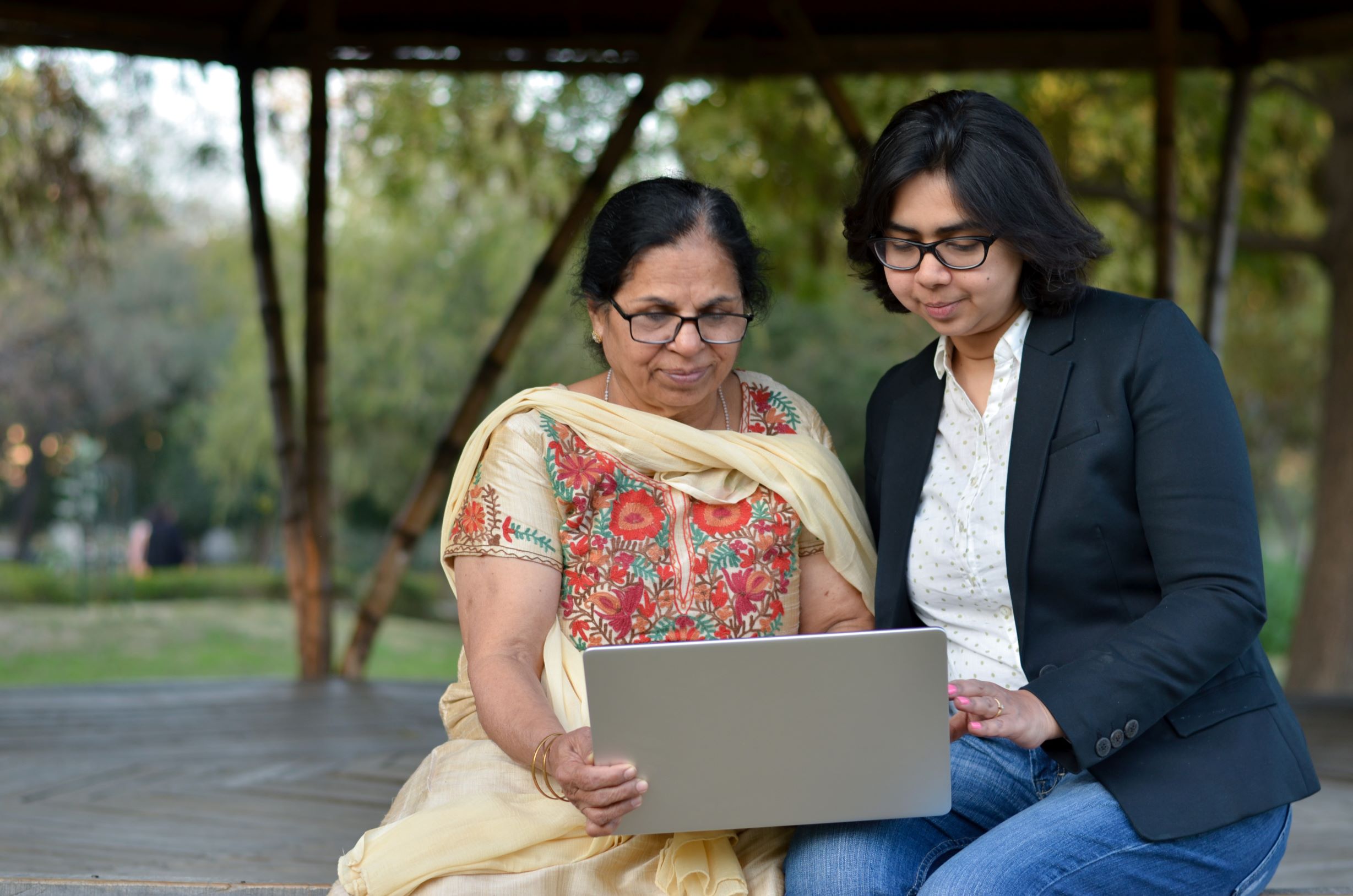
Despite important gains in the formal education of girls in the last decade and half, women in India are conspicuously missing from the workforce. The country achieved universal girls’ enrollment in primary education in 2003, secondary-school enrollment currently stands at 74.5 percent, and in higher education, women participate in close to equal numbers as men. Yet, between 2005 and 2019, India’s female labor force participation fell from 32 percent to 21—a loss of more than 1 out of every 3 formally employed women.
Many factors are behind the decline: family-enforced social norms that place women predominantly in caregiving roles, deeply ingrained stereotypes around occupations that stymie aspirations, traditionally low levels of self-confidence, and information and network asymmetries. With so many job sectors that are traditionally male-dominated, women do not have access to the same amount of information and opportunities.
Mentor Together, the organization I founded in 2009, created a virtual mentoring program in 2018 for university students across India—with the goal of supporting workforce readiness through soft skill development, career planning, and network building. As the COVID-19 pandemic forced education institutions in India to close on-campus classes for the better part of 2020, we conducted virtual townhall meetings through which we onboarded 8,000 students from more than 10 states. We were heartened that more than 60 percent of our new sign-ups were young women. Female mentees also outnumbered their male counterparts 3 to 1 in accessing our six-month mentoring program!
Young women like Manjula (name changed for privacy), a graduate student of technology, are well aware of the challenges that face them and actively seek out mentorship that helps sharpen their skills and develop a plan of action to counter these challenges:
“This program is most recommended for students from rural backgrounds because we interact with a mentor who is a working professional, who is dedicated and committed to help students… Whenever I’m speaking with [my mentor], I feel like I’m speaking with my elder sister because she supports and cares so much. … She always shares her experiences in the field which is very important for me because I don’t have much knowledge about work life and programming. That was quite challenging and worrying for me, but now I am learning and understanding programming languages and got more confidence about myself because of my mentor.”
As an Echidna Global Scholar, my research at Brookings will focus on understanding the role of mentorship in the personal and professional journeys of young women. I will study the prevalence and interplay of factors that support or obstruct women’s professional aspirations and plans. I will also examine the role of mentorship in helping young women improve their work-readiness skills, career decisionmaking, and self-efficacy. Additionally, I will explore the possibilities, as well as the limitations, of the virtual mentoring format.
Young women are persevering in education against so many obstacles; it is our collective responsibility as a society to back up young women like Manjula with a “village” of mentors that champion their dreams.
A United Nations Development Programme study of the current policy landscape in India for women’s labor force participation found that out of 53 policies evaluated, the most frequent support provided to women was financial assistance (67 percent of the policies). Support to tackle challenges around social norms, beliefs, and information asymmetries were scarce. Less than half the policies focused on the capacity building of women, and less than a quarter on job placement and mentoring. Through my research, I hope to map out a richer framework of policies that can bring together actors across sectors to provide a broader range of supports to young women as they transition to the world of work.
If even half of Indian women were in the labor force, income per capita could increase by an estimated 20 percent by 2030. Young women are persevering in education against so many obstacles; it is our collective responsibility as a society to back up young women like Manjula with a “village” of mentors that champion their dreams.


